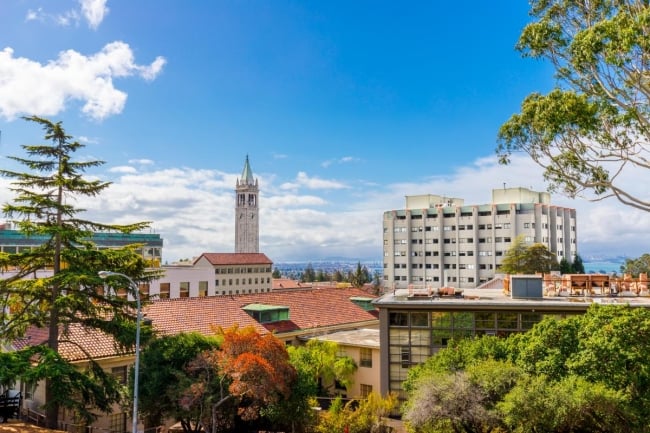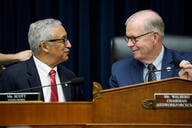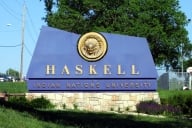You have /5 articles left.
Sign up for a free account or log in.

University of California, Berkeley
lucentius/iStock/Getty Images Plus
An Alameda County Superior Court judge has ordered the University of California, Berkeley, to freeze student enrollment.
The highly unusual order more specifically directs the university to “suspend any further increases in student enrollment at UC Berkeley, in academic years 2022-2023 and later, above the level of student enrollment in academic year 2020-21” until the university comes into full compliance with the court’s requirements.
It also instructs UC Berkeley to void its decision to move ahead with a planned public-private development project, the Upper Hearst Project, intended to create new academic space as well as faculty, postdoctoral researcher and graduate student housing.
The Aug. 23 order comes in response to a lawsuit filed by Save Berkeley’s Neighborhoods, a local nonprofit group, and follows a July 9 ruling by Judge Brad Seligman concluding that an environmental impact analysis completed by the university was “legally insufficient in several respects,” including in relation to its analysis of the impacts of increased student enrollment.
Seligman wrote that Berkeley’s 2020 Long-Range Development Plan, certified in 2005, had projected that student enrollment would stabilize at around 33,450 students. Instead, he wrote, “it continued to increase and quickly exceeded those projections."
Berkeley's enrollment grew to 40,955 by the 2017-18 academic year, and the university has projected it will increase to 44,735 by 2022-23 -- more than 11,000 students and 33.7 percent higher than the projected headcount for 2020.
According to the decision, Berkeley's environmental impact study concluded that the excess enrollment has had "no significant environmental impacts" and that there was therefore no need for the university to have considered reducing enrollment in order to minimize adverse impacts.
Seligman faulted this line of reasoning: “Because the court concludes that the environmental analysis was flawed, however, this court cannot endorse UC Berkeley’s conclusion that the lack of analysis of a reduced enrollment alternative is legally permissible. Moreover, UC Berkeley’s argument does not address the future impact of increased enrollment due to the [Upper Hearst] ‘project,’” he wrote.
Phil Bokovoy, president of Save Berkeley’s Neighborhoods, described the ruling as "unprecedented because the university has conducted itself in a way that’s really legally unprecedented in terms of really almost intentionally failing to comply with the environmental laws in California.
"Their failure to comply with analyzing the impact of 11,000 additional students in Berkeley was so compelling to the judge that he felt that it was necessary to tell them that they can’t increase enrollment at this point, until they go back and study the impacts and put mitigation measures in place," Bokovoy said.
Among the mitigation measures Bokovoy wants is for the university to address its housing deficit and "add a bed every time they add a student. Rather than pushing the housing demand onto a city that really doesn’t have the capacity to build for the kinds of numbers that the university is contemplating, they should be required to do that."
A spokesperson for UC Berkeley, Dan Mogulof, said university officials “are optimistic that we can file documents with the court very soon that will satisfy the judgment with regard to future increases in enrollment. It will probably take the university between six and eight months to address the requirements of the judgment with regard to the Upper Hearst project. We are confident that the court will ultimately permit us to proceed with the Upper Heart project.”
Mogulof added, “Berkeley has not been designated by the UC system as a growth campus and, as stated in our recently approved Long Range Development Plan, we are not anticipating that enrollment growth will exceed 1 percent on an annual basis.”
Experts on higher education law said they were surprised by the judge’s order that UC Berkeley freeze enrollment.
Michael A. Olivas, the emeritus William B. Bates Distinguished Chair in Law at the University of Houston Law Center and an expert on higher education law, said decisions about enrollment lie with the UC Board of Regents.
“The term I would use is a bridge too far,” Olivas said. “It just struck me as probably legally presumptuous.”
Peter Lake, the Charles A. Dana chair director of the Center for Excellence in Higher Education Law and Policy at Stetson University College of Law, said the case “definitely implicates some special issues in academic rights and associational freedoms, because the first thought that I had is you could increase enrollment theoretically and not necessarily damage the neighborhoods.”
“This is an example of colleges being treated like other businesses without any special accommodation for the unique academic environment,” Lake said. “The other thing that just hit me is what happens when colleges run out of space … I think it’s probably the first time in American higher education legal history where you get an opinion that says you can’t get much bigger than this.”




